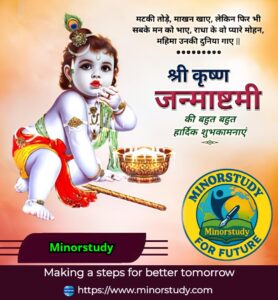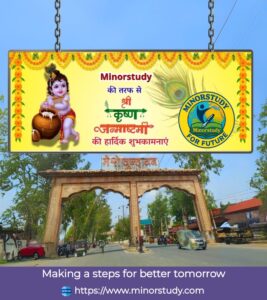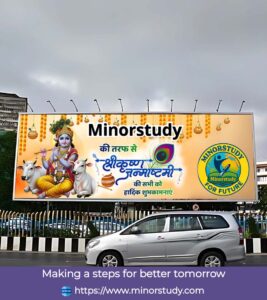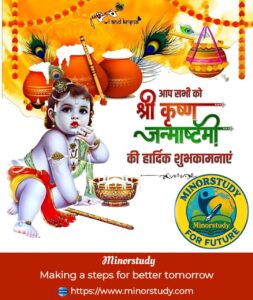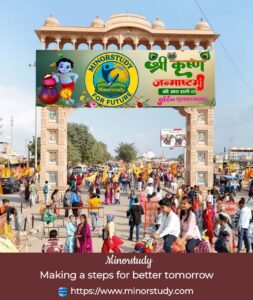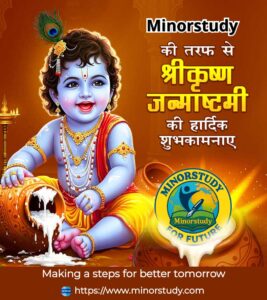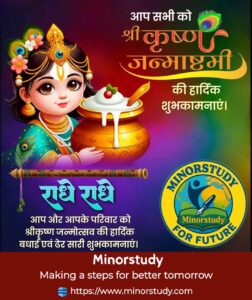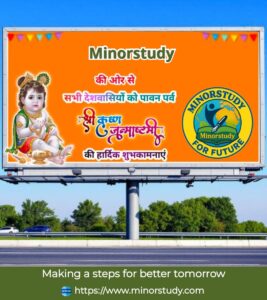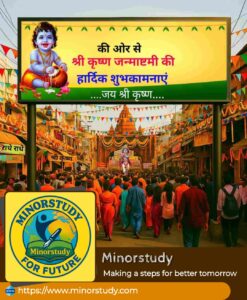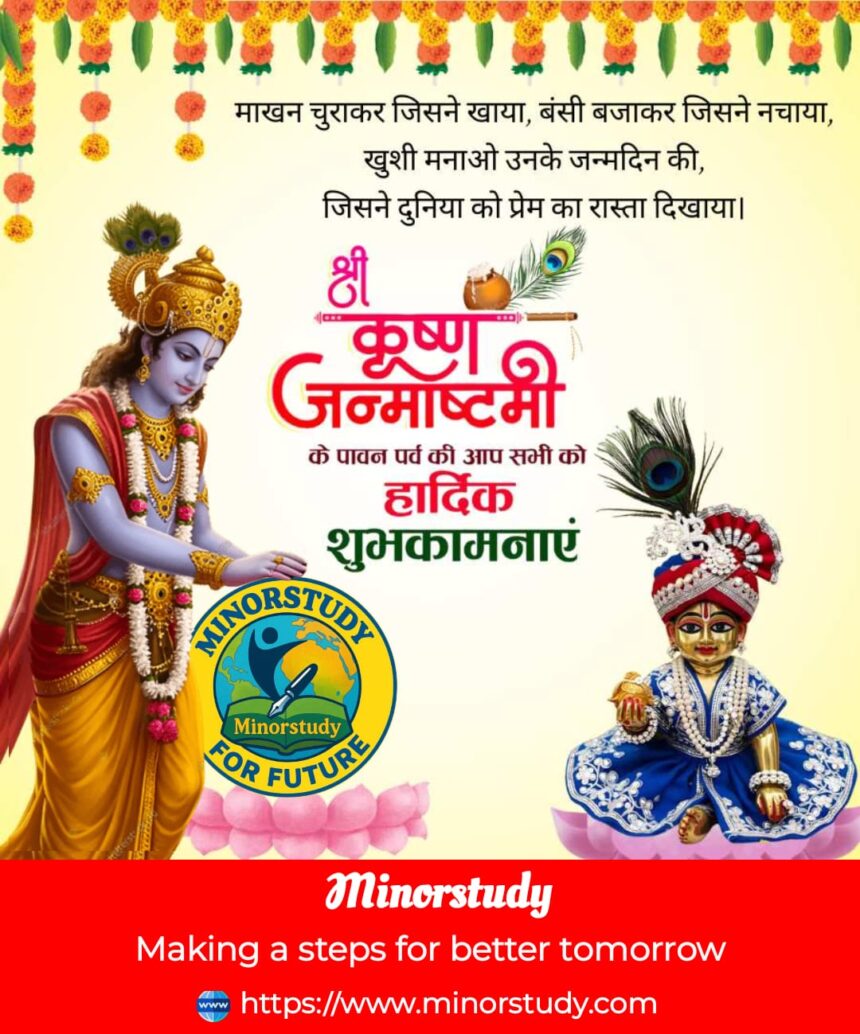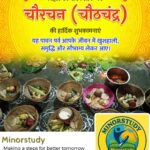Happy Janmashtami Photos, Wishes, History, Facts, FAQs, Timeline, and Significance
Janmashtami, one of the most vibrant and celebrated festivals in India, marks the birth of Lord Krishna, the eighth incarnation of Lord Vishnu. Observed with immense devotion, joy, and enthusiasm, this festival brings communities together and reminds us of the timeless teachings of Krishna that continue to inspire millions around the world.
From decorating homes with lights and flowers to organizing Dahi Handi events, Janmashtami is not just a religious observance; it is a cultural celebration that highlights love, devotion, unity, and moral values. This article explores the history, facts, FAQs, timeline, significance, wishes, and daily life impact of Janmashtami, along with beautiful photos and wish ideas to make the celebration even more memorable.
History of Janmashtami
Janmashtami celebrates the birth of Lord Krishna, which according to Hindu mythology, occurred over 5,000 years ago in Mathura. Born to Devaki and Vasudeva, Krishna’s life symbolizes the victory of good over evil. His birth took place at midnight in a prison cell, under extreme danger, as the evil king Kansa sought to kill him due to a prophecy that Devaki’s eighth son would be his downfall.
Krishna was secretly taken to Gokul, where he was raised by Yashoda and Nand Baba. His childhood tales of mischief, bravery, and devotion have been immortalized in texts such as Bhagavad Gita, Bhagavata Purana, and Mahabharata, making him one of the most beloved deities in Sanatan Dharma.
Facts About Janmashtami
Midnight Celebration: Krishna is believed to have been born at midnight, and devotees observe a fast until this sacred hour.
Dahi Handi Tradition: Inspired by Krishna’s love for butter, young men form human pyramids to break clay pots filled with curd, symbolizing joy and teamwork.
Devotional Music: Bhajans and kirtans dedicated to Krishna are an integral part of the celebrations.
Fasting and Prayer: Devotees often fast throughout the day, performing rituals at midnight and visiting temples to seek blessings.
Regional Variations: While celebrated nationwide, states like Maharashtra, Uttar Pradesh, Gujarat, and Rajasthan have unique customs and festivities.
Timeline of Janmashtami Observance
Preparation (1–2 Days Before): Homes are cleaned, temples are decorated, and devotees prepare special sweets like Makhan Mishri and Panjeri.
Daytime: Many devotees observe a partial fast, offer prayers, and perform devotional songs.
Evening: Special cultural events, dance dramas depicting Krishna’s life, and Bhajan sessions begin.
Midnight: The exact moment of Krishna’s birth is celebrated with rituals, singing, and breaking Dahi Handi.
Post-Midnight: Prasad (holy food) is distributed, and devotees break their fasts.
Significance of Janmashtami
The festival of Janmashtami is not only a spiritual observance but also a celebration of moral values and human virtues. Here’s why it is significant:
Victory of Good Over Evil: Krishna’s birth signifies the triumph of righteousness, inspiring people to uphold justice.
Devotion and Faith: It teaches the importance of unwavering devotion to God and moral principles.
Unity and Community Bonding: Events like Dahi Handi promote teamwork, cooperation, and joy in community gatherings.
Spiritual Awakening: Reading Krishna’s life stories encourages self-reflection, compassion, and detachment from negativity.
Happy Janmashtami Photos and Decoration Ideas
Janmashtami celebrations are visually stunning, with homes and temples adorned with flowers, lights, and colorful decorations. Some ideas include:
Decorating Krishna idols with peacock feathers and silk clothes
Creating miniature temples or cradles for Krishna at home
Using vibrant rangolis at the entrance to welcome guests
Capturing moments of Dahi Handi events and midnight rituals
These photos not only preserve memories but also share the festive spirit with friends and family on social media.
Wishes and Messages for Janmashtami
Sending heartfelt wishes strengthens bonds and spreads positivity. Here are some examples:
“May Lord Krishna bless you with love, wisdom, and prosperity. Happy Janmashtami!”
“Celebrate the birth of Krishna with joy and devotion. Wishing you a blessed Janmashtami!”
“May your life be filled with sweetness and happiness, just like Krishna’s butter. Happy Janmashtami!”
FAQs About Janmashtami
Q1: Why is Janmashtami celebrated at midnight?
A1: It marks the exact time of Krishna’s birth, believed to have taken place at midnight. Devotees observe rituals at this sacred hour.
Q2: What is the significance of Dahi Handi?
A2: It symbolizes Krishna’s playful nature and love for butter, while promoting teamwork and celebration.
Q3: Is Janmashtami observed differently in various regions?
A3: Yes. For example, Maharashtra is famous for Dahi Handi, while Mathura and Vrindavan focus on devotional songs and temple processions.
Q4: Can non-Hindus participate in Janmashtami celebrations?
A4: Absolutely! Janmashtami emphasizes universal values like love, kindness, and devotion. Anyone can join the festivities.
Importance in Daily Life
Observing Janmashtami has practical and emotional benefits:
Discipline and Patience: Fasting teaches self-control and mindfulness.
Community Engagement: Festivals create opportunities for social bonding and cultural learning.
Moral Reflection: Krishna’s teachings guide ethical decision-making and life choices.
Happiness and Positivity: Celebrating with family and friends fosters joy, reducing stress and enhancing mental well-being.
Conclusion
Janmashtami is far more than a religious festival. It is a celebration of life, morality, and devotion, offering lessons in courage, teamwork, love, and righteousness. By sharing photos, sending heartfelt wishes, and participating in rituals, we honor Krishna’s legacy and bring positivity into our daily lives. Whether through fasting, prayer, or Dahi Handi celebrations, Janmashtami encourages us to lead lives filled with joy, compassion, and spiritual awareness.
As we celebrate, let us embrace the essence of Krishna’s teachings—to live with love, wisdom, and devotion—and spread happiness wherever we go. Happy Janmashtami!
